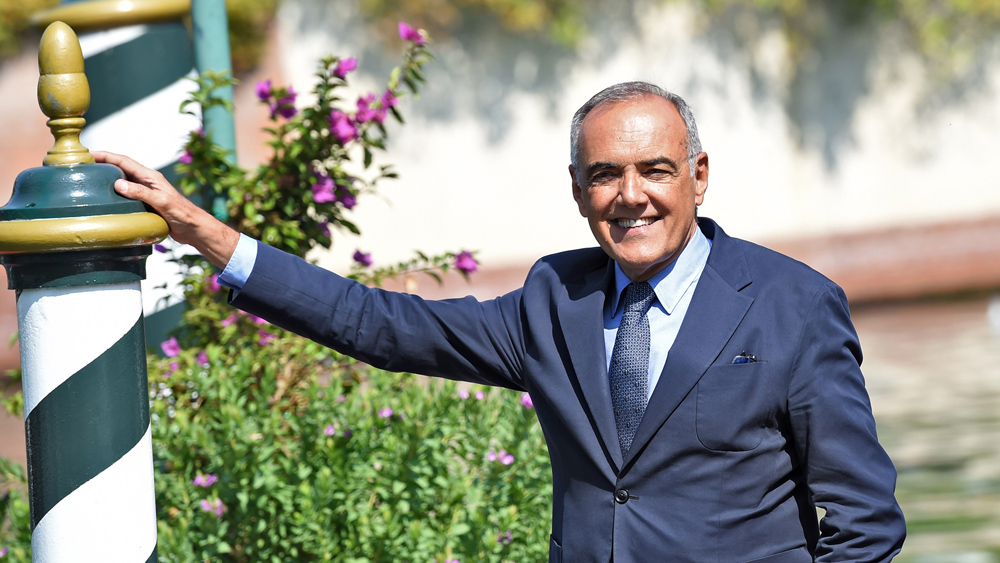Venice Topper Alberto Barbera Weighs in on Fall’s Festival Power Shift
By Nick Vivarelli
LOS ANGELES (Variety.com) – Ever since 2012, when he returned to head Venice, Alberto Barbera has turned the fest into a gateway to Oscar gold, despite being locked into competition with early fall festivals Toronto and Telluride. Winners such as “Birdman,” “Spotlight,” “La La Land” and “The Shape of Water” have all launched on the Lido, and allowed Barbera to be able to pick from just about anything on his radar, he says. Venice’s warm rapport with Netflix and Amazon is also giving the Lido lineup a boost, and vice-versa. Barbera spoke to Variety about the shift in power balance and explained why, unlike Cannes topper Thierry Fremaux, he is embracing the streaming giants.
What’s changed in the dynamics between Venice, Telluride and Toronto?
A lot has changed. At one point, three years ago, the competition among the fall festivals got to be cutthroat. Toronto took an aggressive attitude toward Telluride, which prompted Telluride, in turn, to get more aggressive toward Venice. Toronto tried to turn the situation to its advantage, imposing a world premiere rule even for American movies — which in turn backfired. They realized they were wrong and backpedaled.
Meanwhile, other things have happened: on the one hand we [Venice] had a string of Oscar winners, which underscored Venice’s potential. On the other, the importance of going to Telluride has grown for reasons of prestige, because you don’t go there to show the film to a large audience or the international media. You go there because it’s a prestige label. This has made the balance shift in favor of Venice and Telluride … and Toronto has changed attitude, they’ve become much less aggressive. Of course, they still ask for a world premiere, but in most cases they don’t get it because it’s much easier for everyone to say: “OK, let’s go to Venice, then Telluride and then maybe even Toronto.” Or in any case: “Let’s do more than one fall festival.”
What does the power shift among the fall festivals mean for Venice?
The big advantage I had this year is that we were able to see all of the movies we had our eye on. Some we took; others we did not.
Netflix didn’t go to Cannes due to the theatrical distribution issue. How did that impact Venice?
First off, it’s not just Netflix, but also Amazon who is in Venice for the first time with two films. We had been courting Amazon for years … Amazon [in the past] always preferred going to Cannes, and this year they submitted movies to us in March. We saw them, and closed the deal right away. It’s another sign that, even those who in the past were reluctant to consider coming to Venice, this year are instead coming gladly. As for Netflix, we certainly benefited from the conflict between Netflix and Cannes. Because the two Netflix movies that were ready [Cuaron’s “Roma” and Orson Welles’ “The Other Side of the Wind”] could easily have been in Cannes … but are now in Venice. That said, we have a longstanding rapport with Netflix that goes back to “Beasts of No Nation” and other films. On Netflix’s part there’s been full disclosure: They showed us everything they had, and then we decided together [what would go], based on our preferences.
You’ve made it clear you think the best way to see a movie is in a movie theater. What’s your philosophy regarding Netflix?
I don’t think there can be any form of prejudice toward industry players that we [as festival directors] have to deal with. I also don’t think we have a role to play as mediators regarding changes in the market, nor as censors.
“Roma” and Netflix’s Italian movie at Venice, “Sulla mia pelle,” will be getting theatrical releases. Is this due to any kind of “moral suasion” on your part?
Absolutely not! I’ve never said to Netflix: “Why don’t you do something to get these movies in theaters?” I would never dare. Nor do I think Netflix would listen. The ones who’ve started these negotiations are the directors and producers. Cuaron and his “Roma” producer David Linde … who basically said: “You have to give us the possibility of a limited [theatrical] release!” What counts is the leverage of people like David Linde. I am sure that Martin Scorsese’s “The Irishman” [bankrolled by Netflix] will get a theatrical release. The other end of the bargain for Netflix is that these films will — yes — have a theatrical release, but simultaneous with their release on the platform. And that’s what makes it interesting. If you accept this type of gamble — and if you find exhibitors willing to accept it — you will see that there IS an audience that will go watch the film in a movie theater and that these two types of distribution can co-exist.

